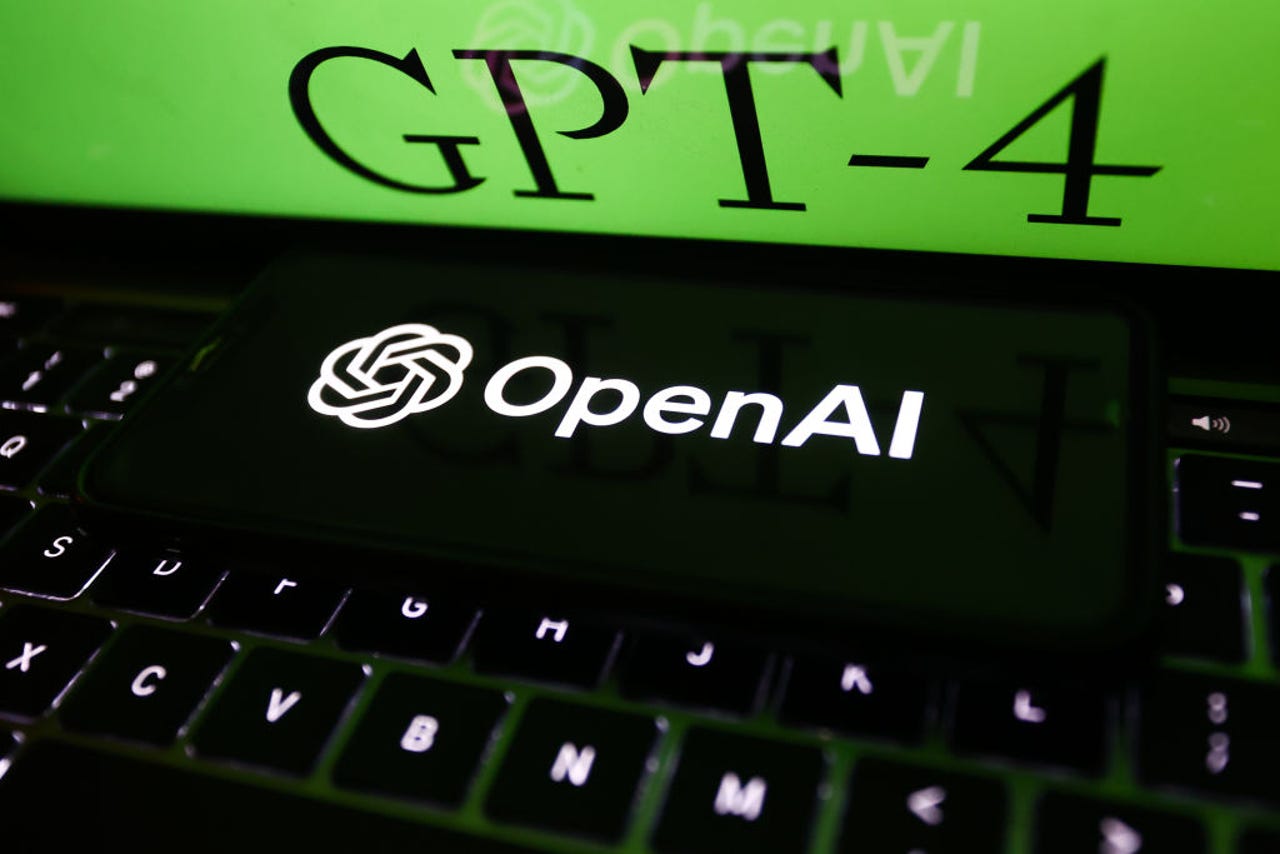GPT-3.5 vs GPT-4: Is ChatGPT Plus worth its subscription fee?

OpenAI describes GPT-4 as “10 times more advanced than its predecessor, GPT-3.5.” NurPhoto/Getty Images
I’ve been using the latest version of OpenAI’s large language model (LLM) GPT-4 since it was released. The only way to access the text-input capability through OpenAI is with a subscription to ChatGPT Plus, which guarantees subscribers access to the language model at the price of $20 a month.
If you’re looking for accurate written answers to your questions, I’ve found this paid-for service is much better than the first mass public previous version, GPT-3.5.
Also: What is ChatGPT and why does it matter? Here’s what you need to know
Don’t get me wrong — ChatGPT-4 can still make blunders, often referred to as “hallucinations”. But if you’re looking to get some smart answers to some challenging questions, ChatGPT-4 is here to help. With that in mind, here are the technical differences between the free version of GPT-3.5 and the paid-for version of GPT-4 in ChatGPT Plus.
OpenAI describes GPT-4 as “10 times more advanced than its predecessor, GPT-3.5. This enhancement enables the model to better understand the context and distinguish nuances, resulting in more accurate and coherent responses.” Specifically, OpenAI refers to a number of differences:
-
Number of Parameters: OpenAI doesn’t reveal the exact number of parameters used in GPT-4. However, according to Andrew Feldman, CEO of AI company Cerebras, GPT-4 has been trained with around 100 trillion parameters. That’s an order of magnitude greater than GPT-3 with its 175 billion parameters.
-
Multimodal Model: GPT-4 is a multimodal model, which means it can process both text and image data. For instance, it can accept an image as part of a prompt and provide an appropriate textual response. Here’s an example: GPT-4 can “view” an image of your refrigerator contents and provide you with recipes using the ingredients it sees. However, ChatGPT Plus will only answer you with text. So, if you ask it for pictures like the Mona Lisa, you’ll be told about similar works, but you won’t see any images.
-
Memory: GPT-4 has a much longer memory than previous versions. While GPT-3.5’s short-term memory is around 8,000 words, GPT-4’s short-term memory extends to around 64,000 words. Additionally, GPT-4 can pull text from web pages when you share a URL in the prompt.
-
Multilingual Capabilities: GPT-4 has improved multilingual capabilities. It can work with 25 languages other than English. These include French, German, and Spanish.
-
Steerability: GPT-4 has more “steerability”, meaning that it provides more control over its responses using a “personality” you pick. For instance, you can instruct it to give you answers as if it were a pirate. I don’t know why you’d want to, but you can. Or, as ChatGPT-4 put it, “I ain’t certain why ye’d be cravin’ to, but aye, ye can, matey!”
-
Limited Search Capacity: While ChatGPT-4’s LLM is still limited to training data up to September 2021, you can instruct it to also search the internet with Bing. This capability helps you get more timely answers. But this beta feature is far from perfect.
-
Plugins: With plugins, another beta feature, OpenAI — and third-party developers — can work with external application programming interfaces to make ChatGPT-4 “smarter”. For example, with the Expedia and Kayak travel plugins, you can ask for the best flights to Vancouver. Or with the Ask Your PDF ChatGPT Plugin, OpenAI will seek your answers from any PDF document you point it to.
The net result of these improvements is that GPT-4 is “smarter” than its predecessor. For example, GPT-4 has achieved higher scores on exams, including the LSAT, SAT, Uniform Bar Exam, and GRE. OpenAI claims that GPT-4’s answers are “40% more likely to produce factual responses than GPT-3.5”.
Also: AI bots have been acing medical school exams, but should they become your doctor?
That’s not to say, however, that GPT-4 is truly smart. For example, on the AP English Language and Composition test, GPT-4 still only scores a 2. That score will not get you into the college of your choice, and it certainly shouldn’t get you a job as a writer.
In addition, while ChatGPT-4 can talk a good game, it and other AI engines are just very advanced, auto-complete, fill-in-the-blank machines. Their answers come from the words that are most likely, statistically speaking, to pop out of their LLMs.
Also: How does ChatGPT work?
Still, OpenAI claims GPT-4 is 82% less likely to respond to prompts that are technically not allowed and 60% less likely to fabricate facts.
So is GPT-4 better? Is ChatGPT Plus worth the money? I think the answer to both of these questions is yes. But one should keep in mind that it’s a useful aid for work, not a worker replacement.
For all the latest Technology News Click Here
For the latest news and updates, follow us on Google News.
